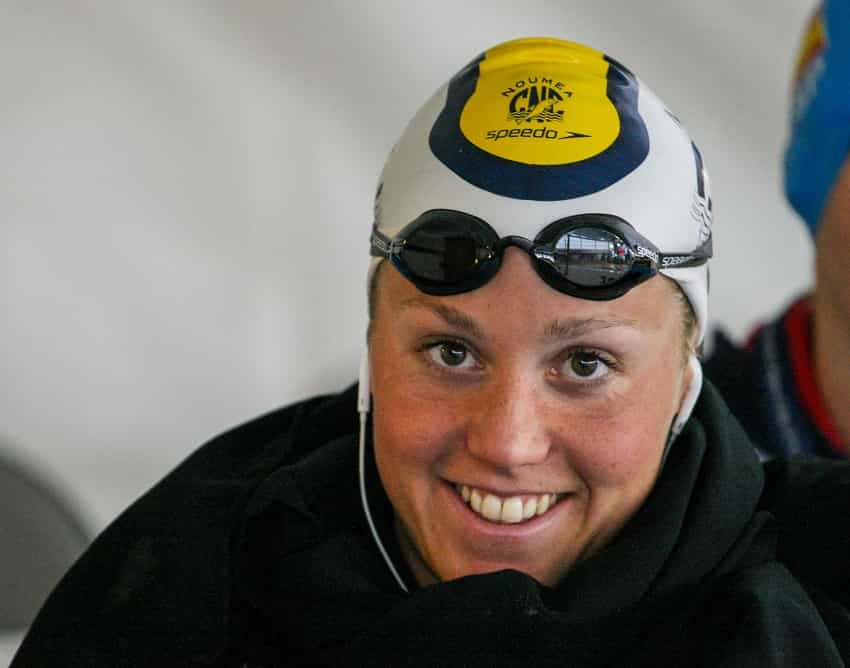The language you use in the water has a direct effect on your effort, your confidence, and your results. Here’s a simple self-talk tweak you can make today for better swimming.
Here’s a quick (and obvious) question for you…
Does the way you talk to yourself make a difference in how you behave?
You know it!
The self-talk you use drives your actions.
Improving your self-talk is hard. It takes time, repetition, and patience to break habits.
And when we need it most—when we are tired, fatigued, struggling—it’s especially difficult.
But you can lock-down some improved self-talk without having to muzzle the voice in your head and spoon-feed your brain the positive self-talk that you want.
Doing something as simple as switching a word or two can make a big impact.
Here’s an example.
Empower your self-talk with “don’t”
Let’s imagine that you are struggling through the main set.
(And let’s imagine a little extra on this one, because I know pools are almost universally closed…)
Things are getting struggley.
Your lungs are burning. Muscles are aching. You are huffing into the gutter between reps, taking it stroke by stroke, second by second, because thinking about the entirety of the set quickly gets demoralizing.
Now…
Let’s say, while in the throes of discomfort and lactic acid, you throw some self-talk at yourself to keep things going.
Something like:
“I can’t give up.”
While good intentioned, the phrasing of I can’t rings of deprivation. Which, let’s be honest, isn’t too motivating. “I can’t” is an escape hatch, a form of negotiation that gives you an easy way out.
But what happens if we were to drop can’t like a sack of potatoes and replace it with don’t…
“I don’t give up.”
Do you hear that?
Feel it?
Not a big change in language, but it pops now, and we slide from a sense of deprivation to empowerment with the speed of a greased-up tech suit.
And this adjustment pays off in a big way.
Researchers [1] sat down with a group of 30 people and measured their persistence to a health and fitness goal over ten days.
They were split into three groups and reported daily on their progress (or lack thereof) to the researchers using one of the following framing conditions:
- The “I don’t” group (“I don’t miss my workouts”)
- The “I can’t group (“I can’t miss my workouts”)
- And a control group, who were not given a framing condition.
Here is how each group fared:
- By the end of the 10 days, 8/10 of the “I don’t” participants were still cruising along.
- 3/10 of the control group were still on track.
- And just 1/10 of the “I can’t” group had stuck to it by the end of the testing period.
Oof…
Toodle-loo, “I can’t.”
Add this to your mental skill arsenal
The power of this subtle change in phrasing should be immediately apparent…
And not just in the pool, when you are grunting through the bubbles during a main set.
But out of the pool, too….
- When it comes to eating better (“I don’t eat junk food for lunch”)
- Going to bed early before early morning workouts (“I don’t stay up late during the week”)
- And giving up during your latest dryland workout (“I don’t call it quits before the work is done”)
Add this little self-talk tool to your training, and reap the added willpower and mental toughness that comes with it.














